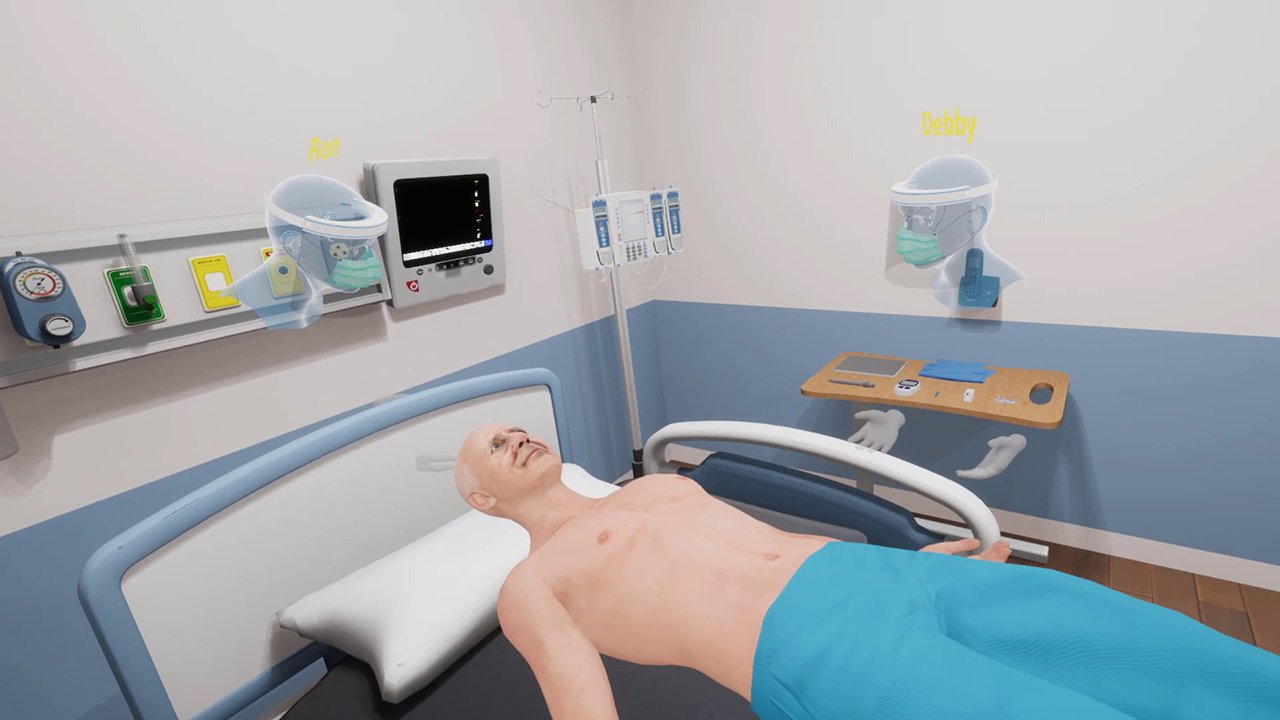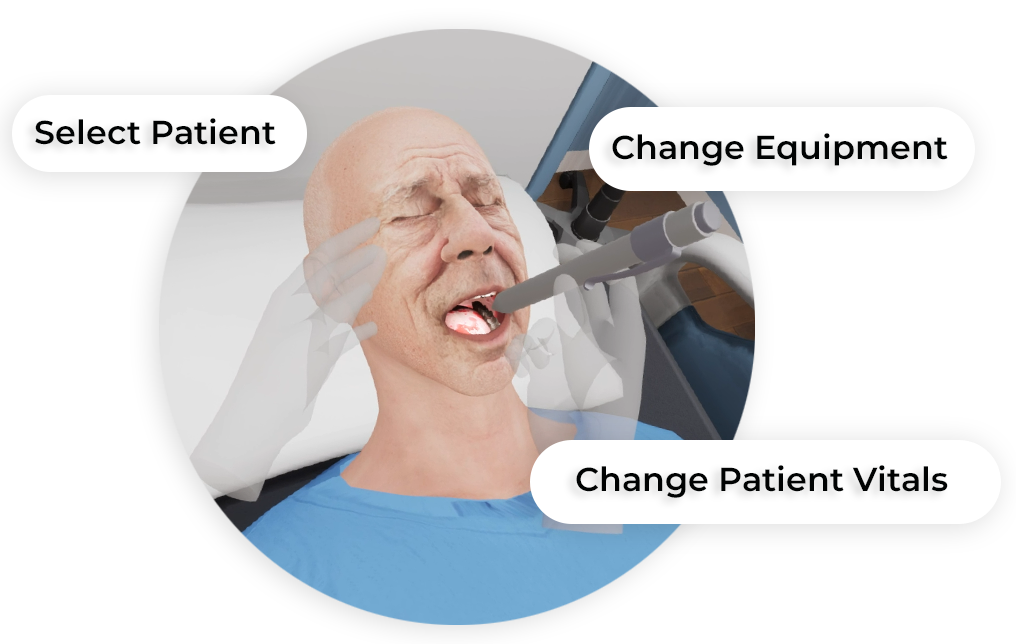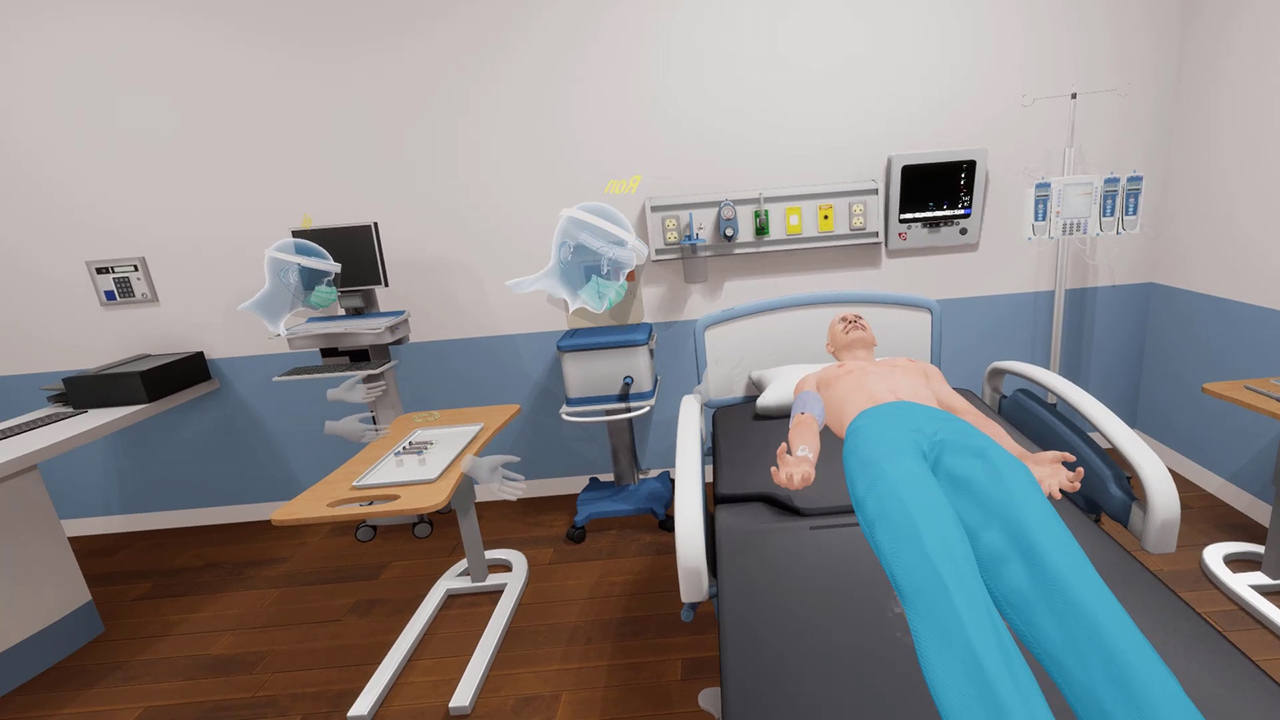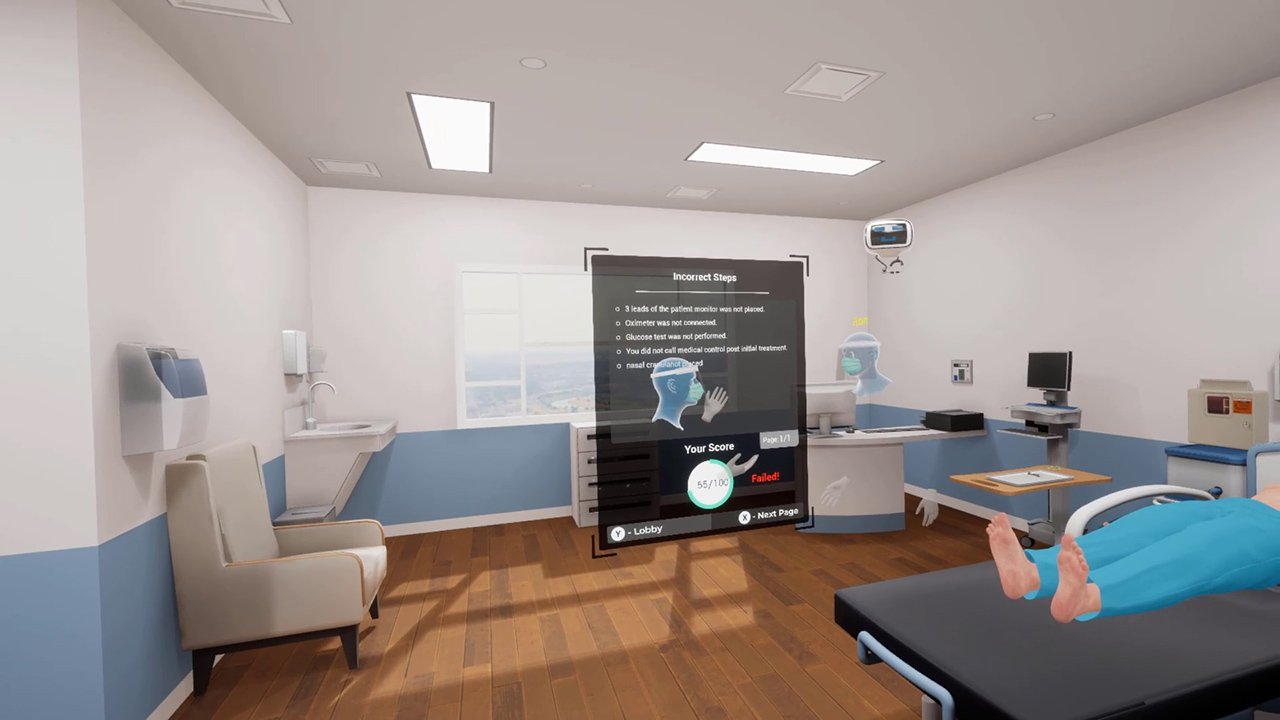Seizure
John Wright is a 67-year-old male who has suffered a generalized seizure. When you, a resident, first see him he appears somnolent and cannot respond to questions. His respirations are sonorous and although his airway seems patent, there is blood in his mouth. There are no signs of trauma but he moans to painful stimuli. What would be your next course of action in treating Mr. Wright?
This multiplayer open scenario VR session on Nightmares Course: Seizure is designed to help learners identify, evaluate, and manage a seizing patient before contacting specialist care.
- Demonstrate organized approach to initial evaluation of a seizing patient
- Call for help in a timely manner
- Begin pharmacologic management of the seizure with benzodiazepines
- Consider possible etiologies of the seizure
- Communicate the clinical situation clearly to consultants
- Initiate a transfer to a higher level of care

- Developed in alignment with American College of Emergency Physicians guidelines.
Customize Your Program
Get rid of the editor. Adopt in-VR customization.
MedVR Education is bringing to you in-VR customization that will enable you to put together your own simulations by making selections from a wide range of feature choices.
- Select patient from a diverse background
- Choose preferred virtual environment
- Configure patient vitals
- Define simulation duration
- Create patient history and train with AI-Humans
- Customize session-end debriefing
- …..many more to come

 AI Patient Assessment
AI Patient Assessment Natural Language Processing
Natural Language Processing Multi-player
Multi-player
Sessions Physics-Based Interaction
Physics-Based Interaction
Core Skills Training

Seizure
In this open scenario, the learner is expected to attend to a patient who appears somnolent and unresponsive to questions after having a generalized, tonic-clonic seizure. He moans to painful stimuli and his respirations are sonorous. While being attended to by the resident physician, the patient suffers another seizure. The resident is expected to administer Lorazepam 2-4mg IV or Midazolam 5mg IV and then call for help. While the emergency response team arrives, the resident is expected to administer the second dose of Lorazepam or Midazolam.
Debriefing
End-of-task debriefing to assess one’s performance, evaluate actions, and get the most out of the session. The debriefing includes crucial points related to the scenario.
- Thorough patient assessment
- Completion of necessary steps
- Correct medication administration to patient
- Sequential completion of task
- Execution of time-sensitive tasks







